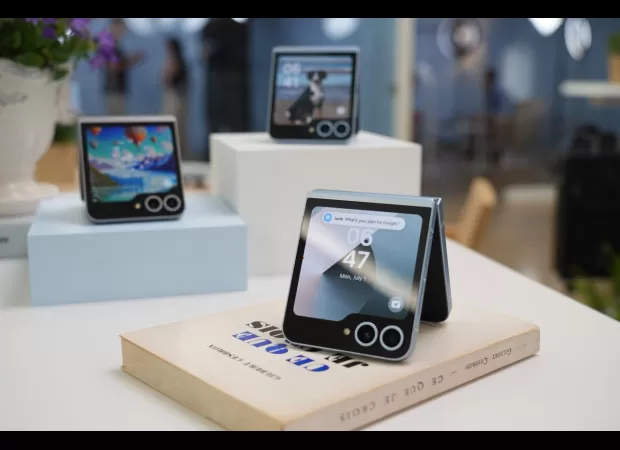How will the AI revolution impact smartphones?
Smartphone evolution: No need to compare cameras or device thickness anymore - AI revolution is the future. - Trevor Long

Smartphones have become an integral part of our lives for over a decade now, serving as our primary means of communication and on-the-go computing. However, the days of comparing camera specs and marveling at the ever-shrinking size and weight of these devices are long gone. In today's market, smartphones all seem to offer similar features and capabilities.
Recently, I had the opportunity to sit down with Samsung's president and head of mobile experience, TM Roh, during a media event in Paris. We were there to discuss the growing trend of foldable smartphones and the revolutionary impact of artificial intelligence (AI) on the mobile industry.
As someone who believes that we have reached the peak of smartphone technology as we know it, I asked Roh how manufacturers would differentiate their devices in the future, considering the saturated market. Would the focus shift from hardware attributes to software and AI capabilities?
Roh explained, "Our current hardware is more than capable of meeting the needs of everyday smartphone users. However, in this new era of mobile AI, there is a demand for new hardware requirements and performance to fully utilize its potential. This opens up new possibilities for mobile AI to enhance user experience."
In other words, instead of seeing significant improvements in camera quality or processing power, we can expect to see more advancements in hardware that will enhance the capabilities of AI in smartphones.
Roh also emphasized Samsung's commitment to making AI a core feature in their devices. He stated, "Last year, I declared to our entire mobile division that we are no longer just a smartphone business - we are an AI phone business. Our focus will be on implementing AI in all aspects of our devices."
Samsung has already introduced Galaxy AI - their AI offering - with great success on the Galaxy S24 series, and it has since been integrated into other models, including the S23. The company has ambitious goals of making Galaxy AI available on all future devices, including foldable phones.
Roh shared, "Our aim is to have 200 million units equipped with Galaxy AI features, making this technology accessible to a wider audience. This is how we are democratizing technology."
When discussing the usage of AI on Samsung devices, Roh addressed the concerns regarding privacy and cloud-based AI processing. He revealed that on-device AI is the preferred method for consumers, with 55% of AI features being used on the device itself. However, he also acknowledged the need for cloud-based AI for tasks that require more processing power.
Roh speculated that in the next two to five years, there could be a balance between on-device and cloud-based AI usage, depending on consumer preferences. He emphasized that Samsung offers the choice to consumers, allowing them to opt for on-device AI if they have privacy concerns.
With the recent launch of the Z Flip6 and Z Fold6, Samsung's latest foldable devices, which also feature Galaxy AI capabilities, the company is focused on providing a premium experience for foldable users. When asked about the possibility of more affordable foldable smartphones, Roh hinted at ongoing research and development to make this a reality in the future.
In response to the question of whether Apple will release a foldable phone, Roh could not speak for the company but emphasized Samsung's commitment to listening to consumer needs and developing technology that offers the best experience and usability. He also mentioned their philosophy of openness and collaboration to democratize technology for a wider audience.
It is evident that foldable smartphones are here to stay, and AI is the new battleground for smartphone manufacturers. As the market evolves, we can expect to see more advancements in hardware and software to enhance the capabilities of AI and provide a seamless user experience.
4 Views






